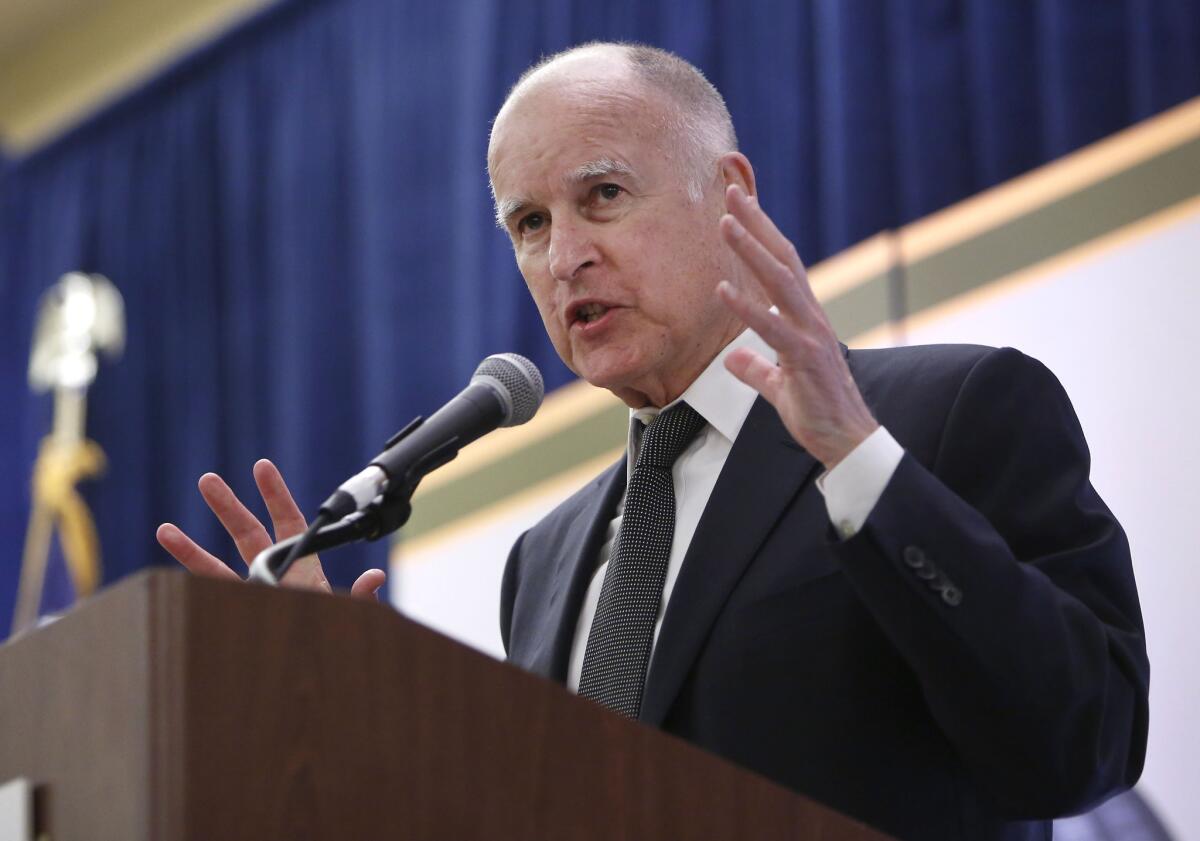Governor would benefit from exemption to open meeting law

- Share via
Lawmakers on Monday moved to roll back state open-government rules, passing a measure that would allow the public to be excluded from certain gatherings including the governor and county officials.
The measure, which the state Senate on Monday sent to Gov. Jerry Brown’s desk for a signature, comes in reaction to a legal opinion by a county prosecutor that a private 2011 meeting between Brown and the Los Angeles County Board of Supervisors violated government transparency laws.
At that closed-door meeting, Brown and the supervisors discussed his controversial plan, dubbed reallignment, to have nonviolent felons remain in county jails rather than be sent to state lockups, to reduce prison overcrowding. Such conversations would be permitted behind closed doors under the new legislation.
The proposal is drawing criticism from open-government advocates, including state Sen. Leland Yee (D-San Francisco), who say it allows the exclusion of the public from important public safety discussions.
“If we start allowing for exceptions in matters of’public security,’ it could be used to justify the concealment of information on anything from disaster preparedness to realignment,” Yee said after voting with two other lawmakers against the bill.
Sen. Ed Hernandez (D-West Covina) told his colleagues Monday that the bill includes the governor on a list of public officials who can meet in closed session with local officials on matters posing a threat to the security of public buildings, services and facilities, and public access to those services.
“This is a dangerous oversight when confidentiality in matters of public safety is needed,” Hernandez said.
The public was excluded from a 2011 meeting between Brown and the county supervisors in which they discussed his controversial plan to have nonviolent felons remain in county jails rather than be sent to state lockups to reduce prison overcrowding.
In response to public complaints, including one from the group Californians Aware, a county prosecutor wrote in a letter last year to county officials that the meeting should have been open because the information discussed was not sensitive enough to constitute a public threat.
ALSO:
California lawmakers OK a dozen gun-control measures
California Assembly approves hike in state’s minimum wage
California Senate seeks to shed more light on campaign cash
More to Read
Get the L.A. Times Politics newsletter
Deeply reported insights into legislation, politics and policy from Sacramento, Washington and beyond. In your inbox twice per week.
You may occasionally receive promotional content from the Los Angeles Times.









